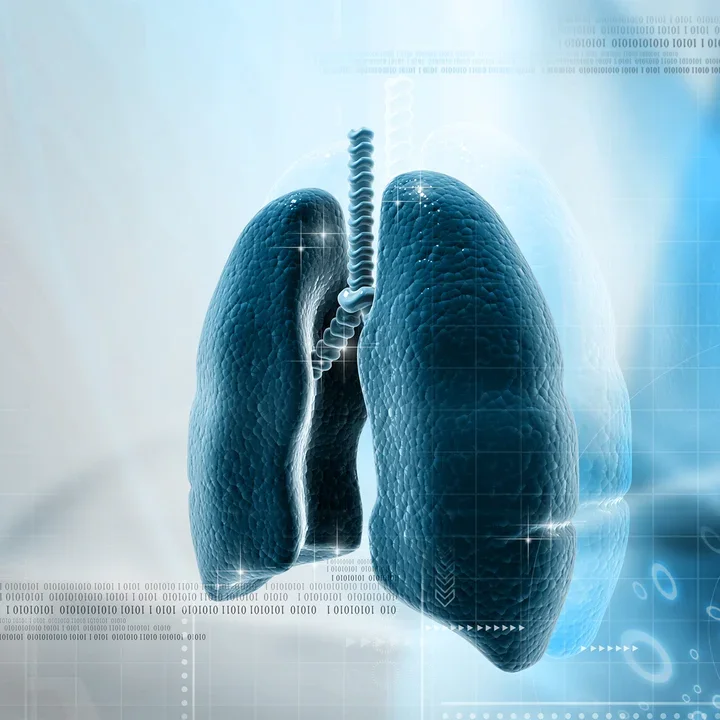Current Research & Collaborations
MII faculty lead a number of biomedical informatics and data science projects, working with engineers, clinicians, and other researchers to advance knowledge discovery and patient healthcare delivery. You can find out more information on our presently funded extramural research projects below.
Presently funded extramural research projects

Computational Toolkit for CT Acquisition and Reconstruction
This project develops CT-NORM, a toolkit to standardize CT scan parameters and improve the reliability of quantitative image features for disease detection. By mitigating variability in imaging data, it enhances machine learning model performance and supports reproducible imaging phenotypes across clinical domains like lung disease and stroke.

Same-Day Diagnostic Imaging in Breast Cancer Screening
This project introduces AI-driven same-day diagnostic imaging for breast cancer screening to reduce false positives and patient anxiety. By triaging exams at the point of care, it aims to streamline workflows, lower callback rates, and improve patient satisfaction across UCLA Health’s high-volume screening centers.

Computational Feature Profiling for Prostate Cancer
This research aims to improve prostate cancer risk stratification by identifying novel biomarkers and using AI models to detect aggressive cancer. By integrating imaging, histology, and genetic data, the project seeks to reduce overdiagnosis and overtreatment, improving patient outcomes and minimizing unnecessary interventions.

Modeling Electronic Health Records
UCLA is developing a dynamic graph-based PU learning method to analyze complex EHR data. The approach models multi-scale temporal patterns and uses structure-aware negative sampling to improve training. This work enhances how electronic health records are interpreted for better clinical insights and decision-making.
Current Collaborations
In addition to leading projects, UCLA MII faculty contribute to a number of ongoing efforts across UCLA and with other institutions. We work with other basic science and clinical researchers to develop new methods in a number of different application areas.

PREMIERE: Making Biomedical ML Reproducible
This project develops PREMIERE, a standard for sharing biomedical predictive models to improve reproducibility and performance evaluation. By capturing key metadata beyond code and data, it supports transparent comparison and validation of machine learning and statistical models across diverse biomedical applications.

Chatbots for Cascade Screening
Cascade genetic testing (CGT) is a valuable strategy for identifying individuals at risk for hereditary cancer syndromes (HCS) and implementing cancer prevention measures. Despite the life-saving potential of sharing such information and encouraging screening, less than 30% of eligible relatives ultimately undergo CGT. Current methods rely on patients to inform their relatives directly, but this approach is often ineffective.

EPI-LoVE: Long-Term Viral Suppression
The EPI-LoVE project uses digital tools and AI to study and improve long-term viral suppression in people living with HIV. By analyzing care patterns, syndemics, and biomarkers in a diverse cohort, it delivers personalized interventions to support engagement and reduce viral non-suppression.

Rapid Overdose Surveillance Dashboard
This project addresses fentanyl and stimulant overdose in Los Angeles by improving surveillance and targeting addiction services. It supports Dr. Sarah Clingan’s research using EHR and NLP to identify polysubstance use and healthcare gaps, aiming to inform treatment strategies and promote equity in addiction care.

iDIVERSE: Enhancing Clinical Trial Diversity and Cardiometabolic Health
This project uses community engagement, mHealth tools, and data science to boost clinical trial participation among multiethnic populations and improve cardiometabolic health. By integrating tailored interventions and predictive analytics, it aims to overcome barriers and promote equitable research participation and outcomes.

Coordinating Standards, Diversity, and Ethics to Advance Biomedical AI
The BRIDGE Coordination Center supports the NIH Bridge2AI Initiative by integrating AI tools and training resources across biomedical domains. It optimizes algorithm performance, develops educational programs, and promotes FAIR data practices to ensure equitable, collaborative, and effective use of AI in healthcare research.

Wearable Biosensor to Guide Exercise in Patients with Heart Failure
This project uses wearable sweat sensors and machine learning to detect high-risk physiological features during exercise in heart failure patients. By providing real-time insights, it aims to improve safety and personalize exercise management, enhancing outcomes through non-invasive monitoring.

Improving the Patient Experience of Hemodialysis Vascular Access
This project develops an evidence-based guide to help end-stage kidney disease patients choose vascular access types. By linking national registries and applying machine learning, it predicts patient-centered outcomes and supports shared decision-making, aiming to improve satisfaction and reduce unnecessary procedures.

Expanding on a New Paradigm for MRI in Pediatric Congenital Heart Disease
This project develops next-generation ferumoxytol-enhanced cardiac MRI for children with congenital heart disease, aiming to reduce invasive procedures and sedation. It also advances anatomical and hemodynamic modeling to guide surgical planning and predict outcomes, enhancing care through multi-center collaboration and innovative imaging techniques.

Determining the Malignancy of Lung Nodules
This project combines cfDNA methylome analysis with low-dose CT imaging to develop a non-invasive, accurate, and affordable tool for early lung cancer detection. By integrating molecular and imaging data, it aims to improve diagnostic precision and reduce reliance on invasive procedures.

Cloud-based Liquid-biopsy and Radiomics Platform
This project integrates EarlyDx’s liquid biopsy platform with the Cancer Research Data Commons to enable cloud-based multi-omics and imaging analysis. Focused on early lung cancer detection, it leverages deep learning and minimally invasive biomarkers to accelerate research, improve diagnostics, and support broad clinical adoption.

Increasing Surveillance Colonoscopy for High-risk Colorectal Polyps
This project aims to improve colorectal cancer prevention by increasing surveillance colonoscopy rates for high-risk neoplasia patients. Using a technology-assisted intervention at UCLA Health, it automates patient identification, reminders, and scheduling to overcome barriers and streamline follow-up care, potentially transforming clinical practice and reducing cancer risk.

Lung Cancer Biomarker Characterization Center
This project develops and validates minimally invasive biomarkers to reclassify intermediate-risk lung nodules, reducing diagnostic uncertainty. Using nasal swabs, blood tests, and imaging, it aims to improve early lung cancer detection and streamline clinical decision-making through a predictive model supported by large, diverse patient cohorts.

EFIRM Liquid Biopsy Research Laboratory: Early Lung Cancer Assessment
This project advances EFIRM-liquid biopsy technology to assess indeterminate pulmonary nodules (IPNs) for early lung cancer detection. By integrating omics targets and imaging into a predictive model, it aims to distinguish benign from malignant IPNs and develop a clinically deployable diagnostic test.

Metastatic Disease after Neoadjuvant Intensive Androgen Signaling Inhibition
This project analyzes histopathological structures from prostate tissue to identify men at high risk of metastasis after androgen inhibition therapy. Using segmentation algorithms, it distinguishes stroma from epithelium in biopsy and prostatectomy samples to improve understanding of disease progression and support risk stratification.

Hypothalamic Amenorrhea as a Fertility Status Marker for Cardiovascular Health
This study investigates hypothalamic amenorrhea (HA) as a marker for cardiovascular disease (CVD) risk in young women. Using remote monitoring and cohort data, it aims to identify HA-specific phenotypes linked to preclinical CVD, enabling early intervention and improving long-term cardiovascular outcomes.